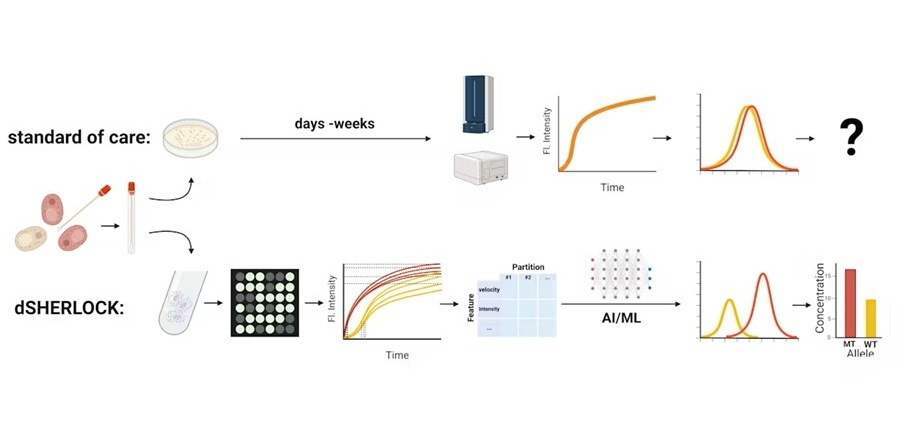Molecular Test Screens for Drug Resistant Bacteria
By LabMedica International staff writers
Posted on 08 Mar 2012
A laboratory-developed test combining enrichment broth and real-time polymerase chain reaction (rt-PCR) can screen for vancomycin-resistant enterococci (VRE). Posted on 08 Mar 2012
The rt-PCR assay, which was developed specifically for the detection of VRE and known as Lab Assay, was evaluated and compared with a commercial VRE detection kit-based method.
Microbiologists at the Karolinska Institute (Stockholm, Sweden) investigated 1,765 fecal or rectal swabs sent to the laboratory for VRE screening in parallel by Lab Assay and the Roche LightCycler VRE kit. Two proven stains of Enterococcus faecium and 52 well-characterized clinical VRE isolates of different clones were tested in the study. Real-time PCR was performed for the detection of VanA and VanB genes.
The diagnostic values for Lab Assay were as follows: 100% sensitivity, 79.92% specificity, 1.94% positive predictive value and 100% negative predictive value, which were comparable to the results from the LightCycler kit-based assay. The detection limit of Lab Assay was 100 to 101 colony-forming units (CFU)/mL of inoculum in broth for both VanA-type and VanB-type VRE. The PCR method developed in the study was approved to be applicable on both the Applied Biosystems 7500 Fast Real-Time PCR System (Applied Biosystems, Foster City, CA, USA) and the LightCycler 480 Real-Time PCR System (Roche Diagnostics GmbH; Mannheim, Germany).
The authors concluded that the flexibility in choosing PCR systems makes it possible that the PCR assay could be fully compatible with the DNA extraction’s platform, providing an integrated workflow. Furthermore, in the material cost around USD 10 per sample is saved when Lab Assay replaces the commercial kit-based method in their routine screening for VRE. Therefore, the laboratory-developed broth-PCR method is an efficient and economical assay for VRE screening. The study was published in March 2012 in the European Journal of Clinical Microbiology & Infectious Diseases.
Related Links:
Karolinska Institute
Applied Biosystems
Roche Diagnostics GmbH













